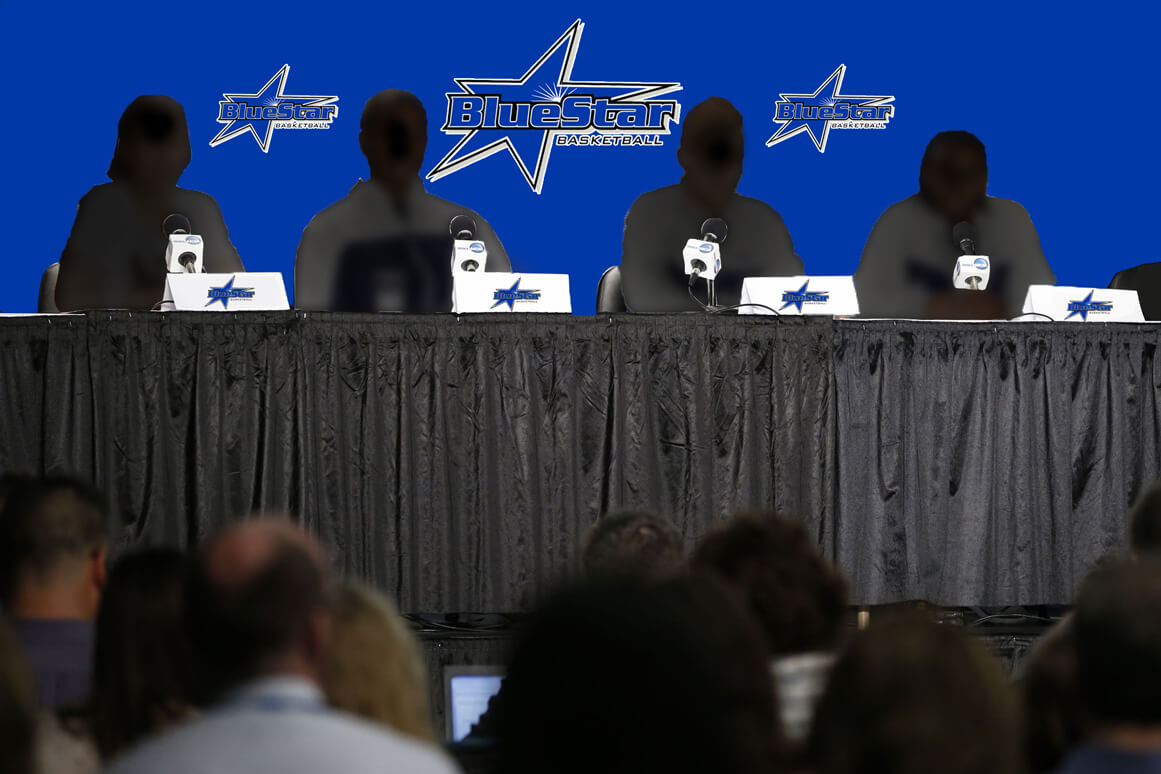Theresa Grentz tried retirement, at least for a while, and liked it at first.
“It was fabulous, priceless,” Grentz says of her sabbatical from coaching, which began when she resigned at Illinois in 2007 after 33 years in the profession, and with a record of 671-309 and 25 post-season appearances.
The former Immaculata great returned close to home near Philadelphia, held a fundraising position at her alma mater and began a basketball academy. As she approached her 60s, life was especially good. She played a lot of golf, savored family, enjoyed old friends and renewed familiar ties.
So when Grentz decided to rejoin the competitive grind, first as a college assistant and then as a head coach, she may have taken herself by surprise.
Even though she had also come to realize that retiring completely from basketball was impossible.
Grentz wasn’t expecting a job offer from Lafayette College athletics director Bruce McCutcheon in April when he asked her to assist in his search to replace Dianne Nolan, who had retired. Grentz served on her staff last season and agreed to help him before presumably returning to the Philadelphia area.
Then he popped a question she never thought she’d be asked again.
“Never once did I even think I would get back into coaching,” Grentz said. “But I missed the kids.”
She said yes, and prepared for a longer stint in Easton, Pa., about an hour north of Philly, than she had first imagined.
“I absolutely love it,” said Grentz, 63 and a new grandmother, in an early December interview with Blue Star Media. “It’s been a wonderful, wonderful experience.
“Where I am right now, to be able to do this, I get up every morning and I thank my God. It’s really a blessing.”
Going back to the basics
 In the late 1980s, Lafayette won the East Coast Conference title, led by point guard Beth Mowins, now an ESPN play-by-play announcer, and who is enshrined in the school’s Maroon Club Hall of Fame.
In the late 1980s, Lafayette won the East Coast Conference title, led by point guard Beth Mowins, now an ESPN play-by-play announcer, and who is enshrined in the school’s Maroon Club Hall of Fame.
The Leopards, now playing in the Patriot League, have never been to the NCAA tournament. They also haven’t had a winning season in 19 years, although they came close in Nolan’s final two years. This season, Lafayette struggled out of the gate, losing their first five games before winning two.
Their record is 2-6 at the fall exam break, but Grentz said she sees improvement by taking a day-by-day, play-by-play approach.
Instead of the numbers on the scoreboard, the wins and losses, she’s emphasizing very basic concepts: Making the perfect pass, having a perfect possession and stressing other fundamentals as a means of measuring performance.
At the Grentz Elite Coaching academy near West Chester, Pa., “I taught, I just taught, for three years. Every little thing. I just taught it—hand positioning (on shots), footwork, so many things. Those things are very important.”
So it’s not a surprise that the pure teaching and psychological components of coaching are the cornerstones of her rebuilding project at Lafayette. Her staff includes Kristen Foley, her former player at Rutgers, who also coached at Drexel and was a coach and administrator at Temple.
Grentz retained assistants C.K. Calhoun and Ross James, and calls the group her “master staff.” Her first signing class of four players includes a ranked prospect, power forward Olivia Gumbs of Middletown, Del., and the Philadelphia Belles, who came through Grentz Elite Coaching.
Too much ‘poor chaotic basketball’ on display
Stepping away from the head coaching ranks has sharpened Grentz’ perspective on a sport that she has helped shape, first as a player with the Immaculata dynasty (she gave the speech when the Mighty Macs were inducted in the Naismith Hall of Fame) and then as the first full-time women’s college coach at St. Joseph’s, where she stayed for two seasons in the mid-1970s.
Those experiences continued with longer coaching stints at Rutgers (19 years) and Illinois (12 years), and with the 1992 U.S. Olympic team that won a bronze medal in Barcelona.

Lafayette Athletics introduced their 6th Women’s basketball coach in the programs history on Monday April 20, 2015. Theresa Grentz was announced as the new coach by Bruce McCutcheon, Director of Athletics, and Philip LaBella, Sports Information Director, during a press conference at the Kirby Sports Center. Douglas Kilpatrick/Lafayette College Athletics
In the eight years since she left Champaign-Urbana, the women’s college game has changed
dramatically, especially in the generational makeup of the coaching profession.
Few of her peers are strolling the sidelines these days, and the sport has been undergoing various NCAA tournament format and rules changes sparked by the Ackerman White Paper. Coaches are being encouraged to get more actively involved in promoting their programs and boosting attendance.
Grentz is more concerned about the basketball product on the court, and her verdict is a blunt one:
“I think the skill level in our game is declining,” she said. “It’s not where it needs to be. The sport will continue to struggle attracting ticket-buying fans “who aren’t going to spend money on poor, chaotic basketball.”
Working with kids at her own academy reinforced those beliefs:
“You need to be able to dribble the ball, so we worked on ball handling. You need to be able to pass the ball and to shoot the ball, and we did those things.
“If you can’t do those things,” Grentz said, “then we have a problem.”
We were speaking right after the UConn-Notre Dame game, featuring the two most proficient offenses in the country in recent years, and with players who can score at every position.
“Where is the rest of the sport? Where is it?” asked Grentz, who mentioned Seth Curry of the NBA champion Golden State Warriors nearly in the same breath.
“What makes him so good? He can handle the ball, and oh yeah, he can shoot it.”
Grentz is proud that one of her Grentz Elite Coaching graduates, Nicole Munger, not only got a scholarship to Michigan, but is playing a significant role for the Wolverines as a freshman, averaging nearly nine points and 19 minutes a game.
Most of all, she’s revived her passion for basketball through the undiluted joy of teaching, a throwback to the time 40 years ago when she first took up what was then an emerging profession.
“God made me a teacher,” Grentz said. “What I do best is teach, and I will do that as long as the good Lord will let me.”
(Photos courtesy of the Lafayette College Department of Athletic Communications and Promotions)
Wendy Parker is a sportswriter and web editor who has covered women's basketball since the early 1990s. She is a correspondent for Basketball Times and formerly covered women's and college sports, soccer and the Olympics at The Atlanta Journal-Constitution. She is the author of "Beyond Title IX: The Cultural Laments of Women's Sports," available on Amazon, and the creator of Sports Biblio, a blog about sports books and history.




